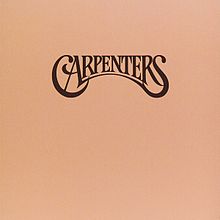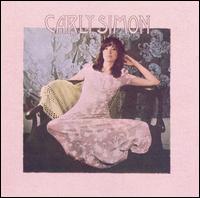We First By Ourselves
Theme Songs Page | Previous Theme Song | Next Theme Song
We First By Ourselves
For All We Know, Music by Fred Karlin, Lyrics by Robb Royer and Jimmy Griffin, Performed by Larry Meredith (1970) and The Carpenters (1971), Encountered 1970 and 1971
Buy it here | See it here | Sheet Music here | Lyrics here
That’s the Way I’ve Always Heard It Should Be, by Carly Simon and Jacob Brackman, Performed by Carly Simon (1971), Encountered 1971
Buy it here | See it here | Sheet Music here | Lyrics here
When I write about deciding to get married, a decision I was confronting in 1970, there is a choice: either a wealth of detail or great simplicity. The subject lends itself to either approach. In my case, however, discretion mandates the latter. As I’ve written before, this is my story, no one else’s.
The hardest fact, then, is the easiest to tell: I suffered agonies of indecision. And this should have told me all I needed to know about whether to proceed, especially in view of how young I was, and in view of the fact my girlfriend S. was even younger. We were both good people and very nearly right for each other for the long term. But nearly only counts in horseshoes and hand-grenades, as S. herself would say in other contexts.
Indecision: Greatest Gen Versus Boomer Style
Harder to tell is the way the air of the times flavored the experience of going through that indecision. Marriage is such an old institution and humanity has had such extensive experience of marriage that in one sense there can be no new wisdom about it, no new thinking. Everything that could possibly be said must surely have been said. Still, every generation confronts the old questions and tries out the old answers in its own way. And certainly this was extraordinarily true of my own generation.
Consider how it had appeared to our parents, the ones who had Weathered the Depression and Won the War. Their identity was as a generation overcoming uncertainty and yearning to establish solid, lasting things. Marriage, the way most of them wanted to believe in it, was one of those solid, lasting things.[1] They could flock to its strictures and protections because they knew and were sick of the contingency of economic upheaval and world conflict. From my perspective, they didn’t handle what their vows created any better or any worse than any other generation did, but I’m convinced they decided more decisively whether to take the vows in the first place. At least more decisively than my generation did.
As for us Boomers, raised amid comparative peace and prosperity, we had been encouraged to make lifelong enterprises out of exploration of ourselves and our potential. And it would be hard to be continually exploring after one had made certain commitments. Marriage could only be reconciled with this aspiration if marriage itself became part of the adventure, if, instead of becoming the embrace of certainty with a person one knew intimately, it were to be made somehow the very vehicle in which the exciting journey of life could be taken.
The trouble was, if both of you were growing in unpredictable ways, were busy exploring, what would happen when each of you had grown into someone new? After all, that you would each continue to grow, to metamorphose even, was absolutely a part of the program. Could a marriage sustain such developments? One could not know for certain in advance. The only thing known for certain up front was the commitment; how much the cherished exploration could persist in its wake could only be known later.
Time Alone Will Tell
For All We Know, which appeared first in a movie all about deciding to get married, Lovers and Other Strangers (August 1970) (it won the Best Original Song Oscar), and then came out as a hit for The Carpenters early in 1971, was a perfect expression of that dilemma:
Love, look at the two of us Strangers in many ways We’ve got a lifetime to share So much to say and as we go from day to day I’ll feel you close to me But time alone will tell Let’s take a lifetime to say I knew you well For only time will tell us so And love may grow for all we know.In other words, finding out whether (or not) you get to know the other person well – presumably if you don’t, it’s because the marriage failed – is part of the great exploration of life. The “great exploration” part notwithstanding, this is hardly a ringing endorsement of marriage.
The staging of that moment in the movie, with Larry Meredith singing the song in (it must be said) an unmemorable rendition, just underlines the equivocation in the feelings. You can see the scene here. Bonnie Bedelia and Michael Brandon, the young couple whose indecision was the linchpin of the plot, finally take hands, ascend to the altar, and stand before the priest. As they say their vows and exchange rings, and Meredith sings, the camera peeks around the church, lighting on various couples, their relationships in various states of array and disarray, including a hilarious three-shot of Gig Young, Anne Jackson, and Cloris Leachman, as respectively the adulterous father of the bride, his paramour, and his unsuspecting wife. You can read the lyrics as hopeful, but they don’t have to be. And as I watched that scene at the time, I understood exactly the ambiguity the moviemakers intended; I was feeling it. And then The Carpenters came out with their own version and made the flavor last.
Two Birds Through The Clouds
Likewise with Carly Simon’s first hit, That’s the Way I’ve Always Heard It Should Be, which came out only about a month before S. and I graduated and, two days later, tied the knot. Simon nailed the paradox of trying to make of marriage a liberation and commitment.
You say we’ll soar like two birds through the clouds, But soon you’ll cage me on your shelf– I’ll never learn to be just me first By myself.That record stayed on the charts a long time, 17 weeks, so basically it was there whenever I turned on the radio during our first summer as a married couple. I can remember stumbling out of the house at dawn and getting behind the wheel headed for my summer job (driving a lunch truck from North Philly to industrial locations in South Jersey) and hearing it as if it had been directed personally to me. I drew consolation from the fact that the singer concludes she should marry, doubts notwithstanding. I also drew consolation from an inability to imagine S. and me suffering in staid misery like the older generation pictured in the song. And shortly thereafter Carly Simon herself got married to James Taylor, no less, and sang glowingly about it – for a while.
So I wrongheadedly ended up taking these basically dark and doubtful songs as omens of hope. A crystal ball would have put matters in a different perspective. Simon, who must have been writing about herself, would see her marriage collapse at the same time as mine did. And Karen Carpenter, who wasn’t actually marrying anyone in those days, married unhappily when she finally did, and, of course, had an untimely death from her struggles with anorexia. I suspect she was too damaged from an early age to make any marriage work, but certainly the one she entered didn’t make anything better; it was not a great adventure.
Weekend In Brigantine
I believe the moment I finally made up my mind was during a brilliantly sunny weekend getaway, in late winter or earliest spring of 1971. Some of my friends and I, not including S., went off to the seaside cottage of one of our parents in Brigantine, New Jersey. I kept to myself, walking or sitting on the shore, staring at the ocean. I think everyone else was paired off, so no one minded when I opted for solitude.
As I stared out at the water, it actually was not the Carpenters’ song in my head; if memory serves, it was Jethro Tull’s Reasons for Waiting again (I wrote of it in my previous Theme Song piece). Some songs have “legs” in your subconscious. You can take that song as a paean to male attentiveness and fidelity, and I think that quality of it helped me make up my mind. In any case, coming away from that weekend, I had decided I could see enough odds of success to undertake the adventure with S.
I cannot call my exact thought process to mind now. I do remember, however, the picture I had for myself and S. We would find our adventure in the study and teaching of literature; our metamorphoses would arise from the encounter with books. If it might seem to you that vowing to shut oneself up in the academic cloister was rather thin gruel, I have to tell you you probably weren’t around in the liberal arts world of 1971. To the stimulus an elite academic setting always provides, the era imparted a special explosive quality. People were demonstrating, acting out, taking drugs, espousing politically radical new critical theories. Anything and everything could happen.
And one thing S. and I knew was we were talented enough to succeed at the challenge. It was a marriage of true minds. And for a good long time, we did not admit impediments.
[1]. My touchstone for this is the song the sailors and their sweethearts sing at the end of On the Town: Some Other Time. That little piece, and particularly the heartbreaking madrigal at its ending, captures all the longing, the frustration with not being able to build anything yet, that I believe typified that era.
Copyright (c) Jack L. B. Gohn, except for album art

